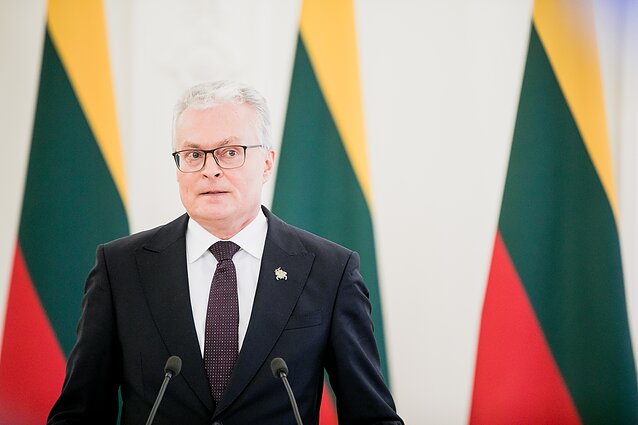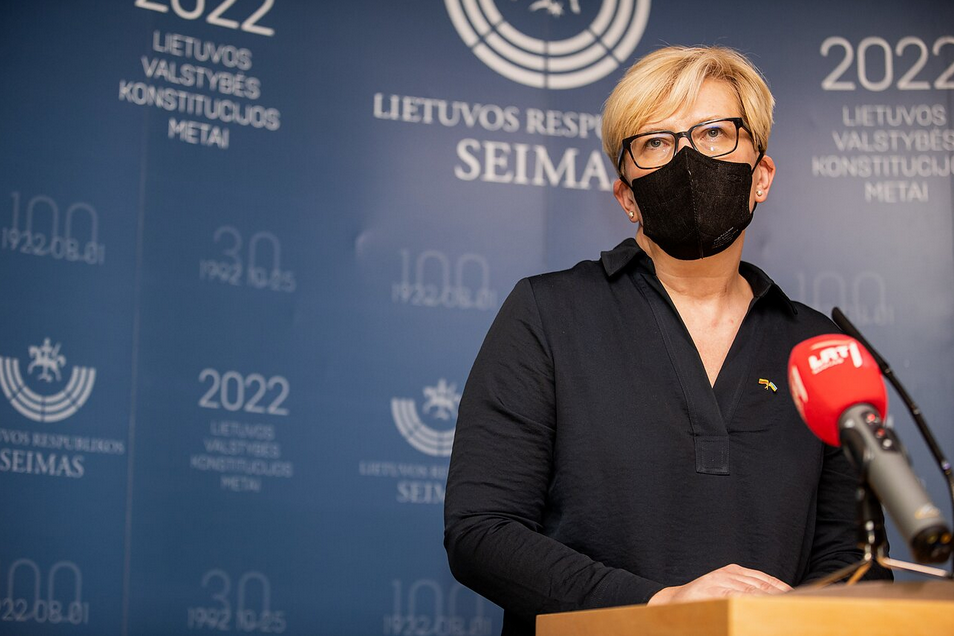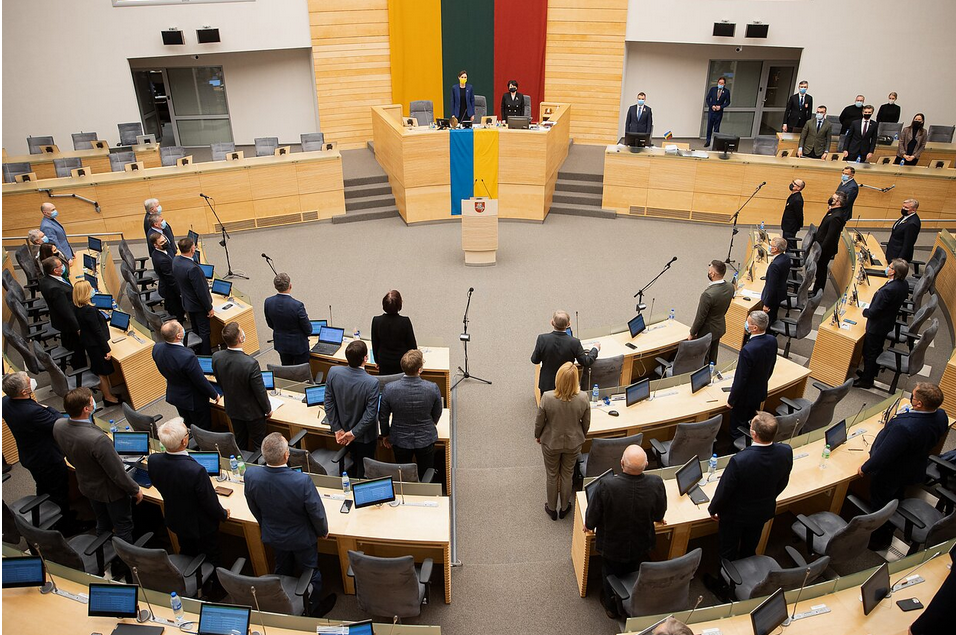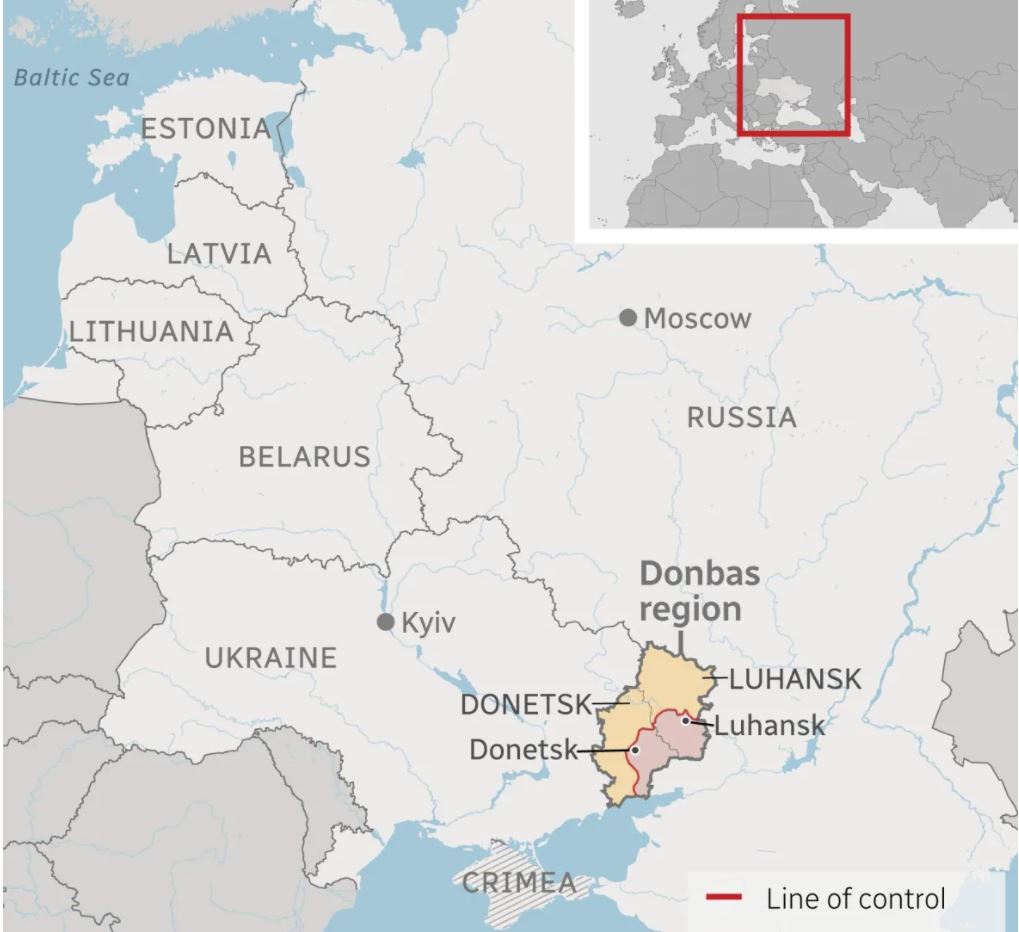
News from LRT.lt, Thursday, February 24
As Russian forces launched a military campaign against Ukraine in the early hours of Thursday, President Gitanas Nauseda announced that Lithuania is introducing a state of emergency, passed by Parliament in an extraordinary session.
The state of emergency is in place from 1 PM on February 24 through March 10. The decree allows a more flexible use of the state reserve and steps up state border protection. Among other things, the authorities will have the right to stop and inspect vehicles, people and luggage in the border area. The document says the Russian attack on Ukraine creates favourable conditions for hybrid attacks and provocations against Lithuania by Russian and Belarusian authorities, especially in the border area. According to the decree, the situation poses a threat to Lithuania’s national security and public order, which requires the temporary imposition of emergency measures.

Prime Minister Ingrida Šimonytė said the state of emergency will not involve significant restrictions on Lithuanian citizens. “We need to provide conditions for state institutions to react to situations in the area of infrastructure, to use state reserve funds,” she told reporters.
The president said the EU sanctions should cover not just Russia, but also Belarus, where Moscow has deployed some 30,000 troops and is perpetrating aggression. As to any danger to Lithuania, the president said: “Lithuania is safe, because it has been a NATO member since 2004. I’ve recently heard reassurances from all NATO state leaders that Article 5 is rock-hard.”
Speaker of Parliament Viktorija Čmilytė-Nielsen added that “although Lithuania is safe, it does not mean that we do not have to work on strengthening our security”. By helping Ukraine, Europe is making the region more secure, she said.

The Lithuanian prime minister said she spoke with her counterparts in Latvia and Estonia about asking NATO to evaluate the situation in Eastern Europe. President Gitanas Nausėda said he was summoning the State Defence Council in order to boost Lithuania’s combat readiness. “I have already started active consultations on further actions with NATO allies and EU partners,” the president said. “Our actions will have to include active support for Ukraine as well as heavy sanctions on Russia.” He added that although there is no direct threat to stability in Lithuania, the situation must be properly assessed and acted upon responsibly and with solidarity.

Lithuania’s Defence Minister Arvydas Anušauskas told LRT TV that about 10 Ukrainian cities were being targeted by Russian missiles. “Russia’s war on Ukraine has begun,” he said.
According to him, the West’s diplomatic measures to prevent Russia from invading Ukraine “have failed”. The Baltic States and Poland will propose to trigger NATO Article 4 on joint consultations of the allies, the defence minister added. “As a rule, such consultations lead to generating some additional forces in one region or the other, and may lead to the activation of the rapid reaction force,” he said. Consultations with the State Defence Council will focus on beefing up the defense of NATO’s eastern flank as a whole, and will also consider assistance measures for Ukraine.
“We in Lithuania know it very well that Ukraine is fighting not just for Ukraine, but for us in the region, Europe and everyone in the democratic world. It is our obligation not just to punish Russia for its actions but to help Ukraine with all and every means available,” Lithuanian Foreign Minister Gabrielius Landsbergis said on Twitter.
The Baltic foreign ministers strongly condemned Russia’s attack on Ukraine and called for strict sanctions against the aggressor. “We, the foreign ministers of Estonia, Latvia, and Lithuania condemn in the strongest possible way the open large-scale Russian aggression against the independent, peaceful, and democratic Ukraine,” they said in a statement that was posted by Landsbergis on Facebook.
Russia’s actions are unacceptable and are a flagrant violation of international law and norms, as well as a crime against the Ukrainian people, according to the ministers. “All of us in the whole international community need to condemn it in the strongest possible way, to impose the strongest possible sanctions on Russia, including disengaging Russia from SWIFT and isolating it politically,” the ministers said.
Cutting Russia off from the SWIFT international interbank settlement system would make most financial transactions with the country impossible. There is also an urgent need to provide Ukraine with weapons, ammunition, and other military assistance, as well as economic and humanitarian aid, according to the statement.
Lithuania is withdrawing its military trainers from Ukraine after Russia attacked the armed forces have said. “In light of the situation, the Lithuanian armed forces’ trainers have suspended their military training mission in Ukraine. They are currently returning to Lithuania,” Rūta Montvilė, spokeswoman for the Lithuanian chief of defence, announced. Until now, Lithuania had around 500 military trainers in Ukraine. Some of them were deployed on a training mission, and others were sent to train local forces to use Stinger anti-aircraft missile systems sent to Ukraine by Lithuania earlier this month. LRT.lt





























